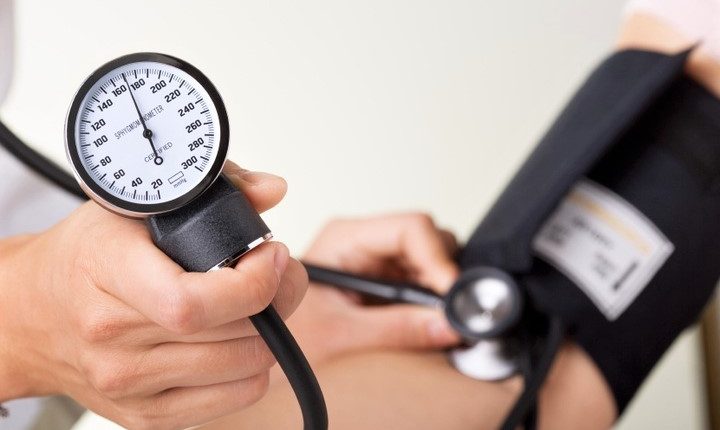
High blood pressure: what are the risks of hypertension and when should medication be used?
High blood pressure affects more than a billion people worldwide and can cause serious cardiovascular and cerebrovascular complications
Hypertension is one of the main risk factors for developing cardiovascular diseases and affects 1.2 billion people worldwide
This number has more than doubled in the last 30 years, according to a recent study published in the scientific journal Lancet*.
In 2019, more than 16 million people in Italy were recorded as suffering from hypertension.
High blood pressure: what are the values?
The blood pressure values considered normal are below 130 systolic, or maximum, and 85 diastolic, or minimum.
Above this threshold, blood pressure can be considered high.
One speaks of clinically relevant hypertension from 140/90: it must be treated with various therapeutic approaches, depending on the degree of severity.
Specifically, we are talking about lifestyle modifications and/or drug therapy, which becomes essential above 160/100 or even for lower values but in the presence of concomitant risk factors.
How and when to monitor blood pressure
If you are on medication, it is advisable to monitor your blood pressure at home a couple of times a week to check the effectiveness of your treatment.
If the values are not under control, or the therapy has recently been changed, it is advisable to intensify the monitoring and proceed with the measurement even 1-2 times a day.
How to measure blood pressure
How do you measure blood pressure?
It is advisable to take your blood pressure in the morning, when the values should be higher, and then in the evening.
It is important to do this in a quiet environment, sitting down for a while before proceeding, perhaps repeating the measurement twice because the first time the results may be slightly altered.
Electronic sphygmomanometers are easy to use at home and give reliable results.
Why high blood pressure is dangerous
Hypertension is the condition that, if unknown or poorly controlled, most often leads to multi-organ dysfunction, especially if related to other risk factors.
It can frequently complicate, giving rise, first and foremost, to cardiovascular pathologies, such as the appearance of
- arrhythmias
- heart failure;
- atherosclerosis;
- heart attack.
It can also contribute to the appearance of cerebrovascular pathologies, such as stroke, or atherosclerotic pathologies of other districts, in particular the kidney.
What causes high blood pressure?
There is no precise cause of hypertension, but many predisposing factors, including genetic predisposition and bad habits.
In particular:
- hormonal alterations;
- an unbalanced diet rich in salt;
- kidney diseases;
- stress
Symptoms of high blood pressure
They are very variable.
It may be asymptomatic, or they may appear:
- tiredness
- headaches;
- heaviness of the eyelids;
- nosebleeds and retinal haemorrhages.
In advanced stages it expresses itself with disturbances due to multi-organ problems, usually when there is already a picture of damage: chest weight, shortness of breath, swollen legs.
In the early stages, however, a person may not even be aware of it, which is why it is important to have sporadic blood pressure measurements, starting at the age of 18
This is why it is important to have occasional blood pressure readings from the age of 18 onwards. These readings are usually taken during normal medical check-ups.
If there are other risk factors, such as being sedentary, overweight, smoking or high cholesterol levels, blood pressure should be checked more frequently.
How to treat
When the patient is in the initial stage of hypertension, and in the absence of other risk factors, it is first necessary to change lifestyle and habits.
It is recommended to
- exercise, particularly aerobic exercise such as walking, running or swimming;
- eat a balanced diet with a low consumption of saturated fats;
- limit alcohol;
- avoid smoking;
- be careful with salt.
Medications for high blood pressure
If your blood pressure goes over the 160/100 mark or if, even with lower values, there are concomitant risk factors (such as diabetes and high cholesterol), you must also take drug therapy.
The most commonly used drugs are ACE inhibitors and/or sartans, calcium channel blockers, beta blockers (for those suffering from diastolic hypertension) and possibly diuretics in combination.
Usually, when drug therapy is started, it is continued throughout life, with periodic checks on values, particularly in summer when hypotension is more likely to occur.
Is hypertension also a problem for women?
Yes, absolutely.
There are gender differences in prevalence, which in women increases with age and associated factors such as pregnancy or menopause.
In these cases the risk is higher.
There are also differences in the consequences: we are observing that in women organ damage can occur earlier and with less response to treatment, so they should be screened early.
* NCD Risk Factor Collaboration (NCD-RisC) (2021) Worldwide trends in hypertension prevalence and progress in treatment and control from 1990 to 2019: a pooled analysis of 1201 population-representative studies with 104 million participants. The Lancet. doi.org/10.1016/S0140-6736(21)01330-1.
Read Also:
Kids With Sleep Apnea Into Teen Years Could Develop High Blood Pressure



